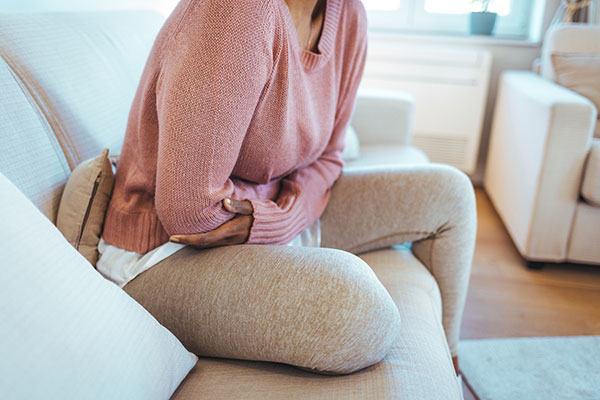Period Cramps: What’s Really Happening and When to Seek Help

Menstrual cramps are a common experience for many women, but if you’ve ever wondered why they happen or why some months seem worse than others, you’re not alone. At North Pointe OB/GYN in Cumming, we’re here to help you better understand your body and manage uncomfortable period symptoms.
Let’s dive into the science behind period cramps, why some women experience more intense discomfort, and when it’s time to seek medical advice.
What Causes Period Cramps?
Period cramps, or dysmenorrhea, occur when your uterus contracts to help shed its lining during your menstrual cycle. These contractions are triggered by hormone-like substances called prostaglandins, which also contribute to inflammation and pain.
Before Your Period
In the days leading up to your period, your body prepares for menstruation by releasing prostaglandins. This can cause premenstrual cramps and other symptoms like bloating, breast tenderness, or mood changes.
During Your Period
Once your period begins, prostaglandin levels peak, causing the uterus to contract more intensely to expel the uterine lining. These contractions can restrict blood flow to the uterine muscle, leading to cramping sensations.
Why Do Some Women Have More Intense Cramps?
Not all period cramps are created equal. Several factors can influence the severity of menstrual pain:
- Hormonal Levels: Higher levels of prostaglandins can lead to more intense cramps.
- Age: Younger women, especially teens, tend to experience more severe cramps, which often improve with age or after childbirth.
- Underlying Conditions: Conditions like endometriosis, adenomyosis, or uterine fibroids can amplify period pain.
- Lifestyle Factors: Stress, lack of exercise, or a diet high in processed foods can exacerbate cramping.
- Genetics: If your family has a history of painful periods, you may be more likely to experience them.
What Can Help Relieve Period Cramps?
If cramps are disrupting your daily life, there are several strategies to reduce discomfort:
At-Home Remedies
- Heat Therapy: A heating pad or warm bath can relax uterine muscles and improve blood flow.
- Exercise: Physical activity releases endorphins, which are natural painkillers.
- Hydration and Diet: Staying hydrated and eating a balanced diet rich in whole grains, fruits, and vegetables can help reduce bloating and inflammation.
Over-the-Counter Medications
- Nonsteroidal anti-inflammatory drugs (NSAIDs) like ibuprofen or naproxen can reduce prostaglandin production and relieve pain.
Hormonal Birth Control
For women with severe cramps, hormonal contraceptives can regulate menstrual cycles and reduce prostaglandin levels, leading to less pain.
When to Seek Medical Attention
While period cramps are often manageable, severe or debilitating pain may indicate an underlying issue that requires medical attention. Contact North Pointe OB/GYN in Cumming if you experience:
- Pain that doesn’t improve with over-the-counter medications or home remedies.
- Period cramps that interfere with your daily activities or cause you to miss school or work.
- Heavy bleeding or passing large clots during your period.
- Pain that lasts longer than your period or occurs at other times in your cycle.
- Symptoms like nausea, vomiting, diarrhea, or dizziness.
Possible Underlying Conditions
- Endometriosis: Tissue similar to the uterine lining grows outside the uterus, causing intense pain.
- Adenomyosis: Uterine lining grows into the muscle wall of the uterus, leading to severe cramps.
- Uterine Fibroids: Noncancerous growths in the uterus that can cause pain and heavy bleeding.
- Pelvic Inflammatory Disease (PID): An infection in the reproductive organs that can cause cramping.
How North Pointe OB/GYN Can Help
At North Pointe OB/GYN in Cumming, we offer personalized care to help you manage menstrual cramps and address any underlying issues. Our experienced team can provide:
- Comprehensive evaluations to identify the root cause of your pain.
- Customized treatment plans, including medication, hormonal therapy, or minimally invasive procedures.
- Support and guidance to improve your quality of life and help you feel your best.
Take Control of Your Menstrual Health
Period cramps don’t have to control your life. By understanding the causes of your pain and seeking appropriate care, you can take steps to feel better every month.
Ready to address your period pain? Contact North Pointe OB/GYN in Cumming today to schedule an appointment. Our compassionate team is here to support your health every step of the way.


